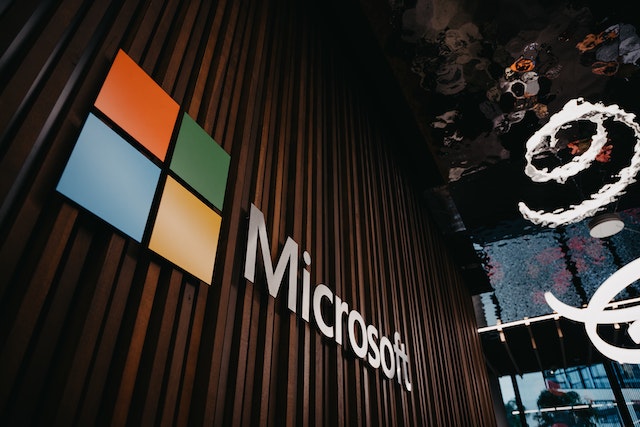"18 years ago, Deppon had only 4 employees and 1 million in revenue; 5 years ago, Deppon has grown into a company with 20,000 employees and 2.6 billion in annual revenue; this year, it has 84,000 employees and 11.2 billion in revenue. 11,200 times growth in 18 years!" What has enabled Deppon to maintain rapid growth over the past 18 years?

Deppon's rapid growth
Entrepreneurs are not an easy group, and it is not easy to build a business empire from zero to one.
Cui Weixing, the founder of Debonair, joined the freight company under CITS after graduating from Xiamen University, and started Cui's Freight in 1996, mainly engaged in the business of air freight of jumpers and consignment of electrical appliances, and made his first bucket of money in 1997.
Mr. Cui dared to innovate and explore, and discovered a new model of profitability in the air cargo industry: the airline combined with the big ticket, and this change in the mode of cooperation with airlines such as China Southern Airlines Lao Gan made Deppon double its profit at that time. Not satisfied with pure air transport, Mr. Cui began to expand the steamship bulk mode. At that time, all kinds of goods were sent out, cars were outsourced, the company was ruled by people rather than by the system, and the shops were not unified, so it started to operate badly and even had losses.

Having learnt from his mistakes, Mr. Cui proposed to focus on the mid-to-high end of the LTL market, a unique market positioning that distinguished him from 99% of his competitors. At the same time, Deppon began to abandon external trucks, importing more than 590 trucks of its own and building 770 routes of its own. At the time of the visit, there were dozens of uniform VI delivery trucks parked at Deppon's company, with the main brands being Volvo, Mercedes and other vehicles of extremely high quality and safety.
Upon entering Deppon, the visitors were surprised by the row of BMW X6s parked in front of the main office building. It was only later that we learnt that BMW X6s are assigned to the vice president level, and according to the different levels, the company also gives BMW sedans, Volkswagen Myrtle and Volkswagen Bora to accompany senior officials and employees. The company has more than 1,100 business cars for its employees, accounting for 170 million assets.
Deppon also has a special feature of holding group weddings for its employees in Bali and the Maldives, which is well received. Usually a company's anniversary is a celebration of food, drink and dancing, but Deppon organises a company-wide long-distance run for every anniversary because the founder, Cui Weixing, feels that being a business is like a long-distance run.
Deppon's philosophy and system for human resources is ahead of its time: a fair hiring system and an elaborate appraisal system. Even so, Deppon still has a high turnover rate, but this is not necessarily a bad thing. Vice President Cui Weigang mentioned that McKinsey's talent turnover rate is 40%, and Huawei's talent rate turnover rate is 18%, so it is important to keep the elite, and to keep the employees who can do the performance and the ideas.
The ultimate shop and service experience
Deppon's shops cover more than 90% of the country's cities, and the uniform shop design and service standards are impressive. With a cost of $70,000 per shop and an annual investment of $100 million for all shops, Deppon's standardised shops make Deppon stand out from the tens of thousands of logistics companies.

Deppon's meticulous service is omnipresent, such as pouring a glass of water for every customer who enters the shop, or answering the customer service phone within three rings, which is one detail after another that has shaped Deppon's high customer satisfaction and reputation.
The role of a leader is no less than that of a national leader
Cui Weigang is the co-founder and vice president of Deppon Logistics is very modest, speaks pragmatically, and his mantra is: "I'll try to answer..." Faced with different questions from island relatives across the country, Mr. Cui was able to answer them with ease, and the venue erupted in applause five times in more than half an hour.
This is how Cui always answered Lean: "Toyota's Lean production standard was evaluated by experts and the result was 70% waste, Toyota is a typical representative of Lean, how should we improve our efficiency? Deppon has been desperately trying to control costs and make the best use of things. For example, the usage rate of the site is divided into high and low periods, we rent during the low season and do promotions for big customers, and speed up the frequency during the high season to increase the amount of goods used. It is true that we do not have enough mechanisation, but is it really not enough? We went abroad to the advanced benchmark have seen, IT is not difficult, really to copy, efficiency will improve? It is more important not to be presumptuous and to strengthen our internal strength."
At the same time, Mr Cui told the audience that 75% of the turnover of the two logistics giants, UPS and FedEx, is generated by domestic business in the US. Globally, there are very few multinational logistics companies. But logistics has two major development histories, one is the history of network expansion, constantly increasing outlets and lines; the second is the history of business expansion, large and small pieces through to do, warehousing and transportation trunk line distribution integration. As China's economy gets bigger and bigger, it is a probable event that China will have more logistics companies than UPS and FedX.
As the person in charge of the company's development, Mr. Cui said that every time Deppon develops a new business, such as express delivery, it spends a lot of money to do so, and starts with a plan to lose money, but is able to win market share. At the same time, IT is the core competitiveness of Debonair, IT costs more than 200 million a year, accounting for 2% to 3% of the company's total revenue. This was well understood during the island pro's visit to the big data centre.

As one of the best logistics companies in China, Deppon has great confidence in creating China's precise logistics and becoming the domestic logistics operator of choice for Chinese people, combining the "standardisation of operational processes" at the employee interface with the "humanisation of services" at the customer interface. It is a perfect combination of standardised work processes at the staff interface and humanised services at the customer interface, with humanised management of its staff, which is apt for the company's strategy at the top and the execution of engineering copies for its staff at the bottom.
















